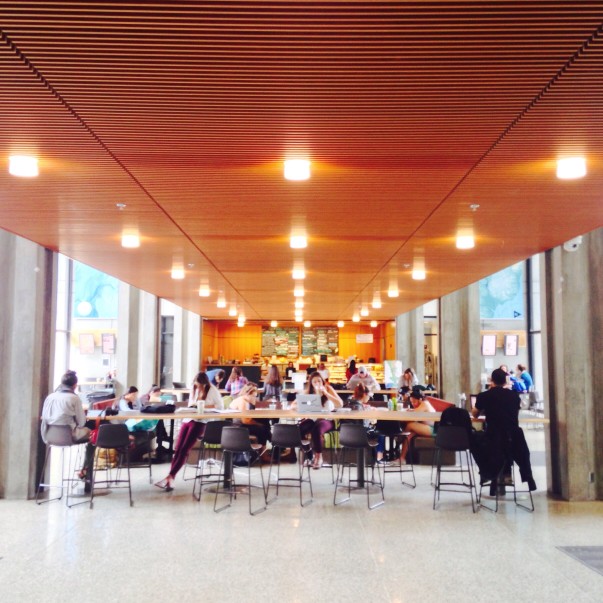Emma Posey was a 2020-2021 Young Scholar Awards Program recipient. She is a graduate of Lee University.
Child support policy in the United States reflects a philosophical progression of “deadbeat dad,” “deadbroke dad,” and a trend that emerged within my own research of “disconnected dad.” For this study, I interviewed 20 non-resident fathers in a father-engagement program in Tennessee to understand the commonalities between fathers with successful payment patterns. I paired this with an analysis of child support policy in the state of Tennessee and concluded with remedial policy solutions.
Child support legislation is focused on the well-being of the child, an essential and unchanging value. Nonetheless, to affect sustainable change in society, one must make an agreement with the entire family. Child support represents the belief that it is good for fathers to be involved in the life of their children through financial, relational, and interpersonal connections. Whereas scholars generally situate the conversation on child support enforcement with a view to the well-being of the child, my study considers the content, quality, and effectiveness of child support policy as it is beneficial for the non-resident fathers in tandem with (and not at the expense of) the well-being of the child. Fathers need relationships with their children, and child support should enable fathers to take advantage of the opportunity to be responsible and involved in their children’s lives.
As I began to study child support policy in the state of Tennessee, I observed the outdated philosophical assumptions underlying the policies. When child support legislation was originally implemented, it was a response to a steady increase in paternal abandonment, resulting in financial destitution and state-assistance for the family. In this case, the emphasis on punitive measures to ensure financial support from the father made perfect sense. However, this no longer represents the dominant demographic of fathers/mothers with child support orders. With 41% of the population born to single-parents, and divorced couples frequently relying on private child support agreements, a large portion of low-income obligators were never married nor necessarily living with their child(ren). As such, current child support is not simply responsible for tracking down “deadbeat dads” or “deadbroke dads,” but also for securing an institutional framework by which the financial, relational, and social dynamics between fathers and children can be encouraged, cultivated, and protected legally despite the mother’s (possible) unwillingness to let the child(ren) spend time with the father.
One of the first sections of questions I asked the non-resident fathers pertains to the role of fatherhood in their life. This sample of non-resident fathers described their role through nurturing and/or relational terms, such as advice-giver, mentor, encourager, and an honest guide through the challenges of life. Interestingly, non-resident fathers did not mention financial contribution nor their role as a provider in their answer. Upon probing further, most would respond with a general, after-thought response of “yes, in order to spend time with your kids you need money to do things.” Evidently, there seems to be a larger disconnect between fatherhood and financial responsibility, at least insofar as a central function of fatherhood. The first key commonality between fathers with successful child support payments was found when non-resident father’s spent time with their children as the primary, responsible adult and they encountered the child’s vulnerability or need. This led to a moment of recognition for the fathers which transformed their (self-reported) subsequent payment patterns.
In Tennessee, the child support court system and the visitation court system are two distinct entities. Nonetheless, visitation and child support orders are legally linked in the perception of the fathers. Of the non-resident fathers I interviewed, 29% initiated their child support orders because they thought it would provide them with legal rights to see their children. However, this is not the case. While minimum visitation days are suggested by the court (280/185), it is reliant upon the child’s mother to decide when/how much the children see their father. In the case of child support, the best most fathers can hope for is the opportunity to see their children every other weekend.
Given that fathers who are actively involved in the life of their children are more likely to pay child support on a consistent basis, and that consistent child support payments are linked with lower levels of financial, behavioral, psychological, and educational issues in the child, linking visitation and child support is the best next step for policymakers to ensure child support facilitates the holistic well-being of the entire family. Thus, policymakers should address visitation disparities through legal, structural and social support program measures. While combining the two courts would be very difficult, a strong partnership between the two court systems would ensure that a non-resident parent’s child support orders would automatically adjust following a visitation adjustment. Second, by increasing the minimum visitation expectation to 10 days per month (when it is geographically feasible) to either two weekends + one Monday-Friday week, or three weekends (Friday evening to Monday morning) per month would ensure fathers spend significantly more time as the primary caregiver. As policymakers continue to research holistic child support adjustments, a careful consideration of the non-resident fathers’ perceptions and stated interests is imperative for overcoming the plight of disconnected dads and subsequently low payment patterns.



